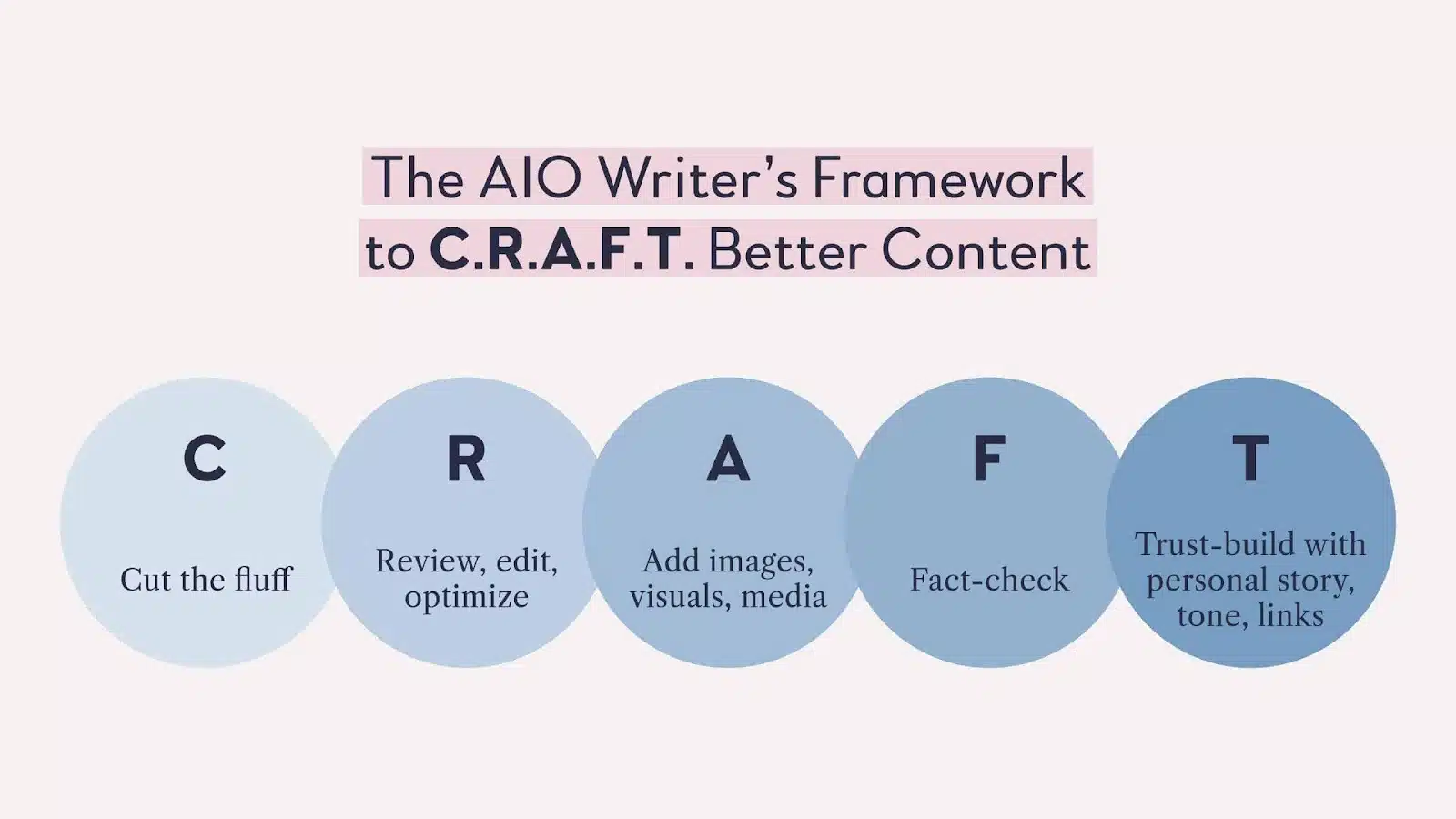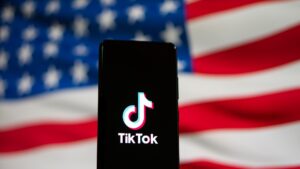[ad_1]
Artificial intelligence (AI) is revolutionizing the digital landscape – leaving no room for outdated SEO tactics. As search engines increasingly leverage AI to anticipate user intent, we must completely rethink our strategies and balance human creativity and AI efficiency to stay ahead.
Let’s explore the innovations, opportunities and pitfalls to master as AI propels search into a new era.
Search evolution: Prioritizing intent over keywords
The era of keyword stuffing is over, replaced by a focus on user intent.
Search engines have evolved to understand the context behind queries. This shift demands a change in SEO strategies – prioritizing creativity and relevance over mere keyword density.
Today’s SEO is about aligning with user goals and pain points, not just keyword counts. Including elements like location-based services and personalized recommendations turns searches into dynamic interactions between users and your content.
Embracing semantic search
Incorporating semantic search requires a mix of data analytics and empathetic writing. This approach focuses on delivering relevant and valuable insights, aligning with E-E-A-T guidelines for expertise and trustworthiness.
In this new landscape, keyword research remains valuable but as part of a wider strategy. It’s about creating meaningful interactions and standing out in a digital world filled with information overload.
Consider Google’s BERT algorithm. It uses natural language processing to understand the real intent behind a search. This is a leap from simple keyword matching to predictive, context-aware results.
This essentially means AI doesn’t just improve search – it anticipates our needs, often before we articulate them.
AI does more than just understand user intent. It also brings personalization to search engines.
By analyzing past user data like location and search history, AI can predict the future preferences of search engine users.
AI’s transformative role in SEO
AI is a pivotal force in digital marketing, making it important for content creators to understand the technology.
It involves machine learning algorithms that analyze data to predict relevant content for search queries.
With search engines like Google and Bing employing AI to enhance result accuracy, marketers must understand AI’s impact to remain competitive.
Leveraging AI for advanced content strategies
AI tools offer more than just enhancements to current strategies.
They enable optimization through trend identification and advanced analytics. These tools provide insights into strategy performance, like click-through rates and page engagement.
AI also suggests improvements based on user behavior, revolutionizing content optimization by revealing new opportunities and offering data-driven recommendations for continuous enhancement.
The balance between man and machine: The future trend?
Despite AI’s advancements, the need for human narrative crafting remains.
This balance is where concepts like AIO and my C.R.A.F.T framework become crucial, merging machine learning with human intuition to produce compelling, search engine-friendly content.
Artificial intelligence optimization (AIO) in content creation
AI’s role in content creation marks a new era. Enter AIO writers.
It starts with AI drafting content, embedding keywords, and aligning with search engine results pages. But AI alone is not enough. A human writer trained in AIO takes over next. They take AI drafts and make them better.
These optimized pieces attract readers and meet the criteria of modern search algorithms. They keep the language and brand voice unique.
The interesting thing about this model isn’t just about quantity. I am talking about accuracy and trustworthiness, which are essential for any high E-E-A-T content strategy.
Marketers who embrace AIO in their strategy are leading the way – not keeping up.
Synergy of AI and human expertise in SEO
AI boosts efficiency, but the nuanced touch of human writing brings depth and appeal to the content. This collaborative process involves using AI for initial drafts and human skills for final refinements.
Today, creating SEO-friendly content requires a careful approach. AI lays a solid groundwork, but human skill is what makes content stand out.
What C.R.A.F.T. is all about
I developed the C.R.A.F.T. framework to steer content creators in a rapidly changing digital environment, especially when working with AI-generated content.
AI writing isn’t ready to publish as is. It lacks your personal experiences, client insights, and unique tone.
That’s where C.R.A.F.T. comes in. It empowers writers to infuse AI content with these essential human elements and ensures your content reflects you and your audience.
Here’s what it looks like.


Cut the fluff
C.R.A.F.T. centers on concise, impactful writing. Eliminating excess words is essential in today’s information-saturated world.
This approach aligns with Google Search Essentials (formerly Webmaster Guidelines), which prioritizes valuable content for users.
Review, edit, optimize
Transform good writing into great communication. Refine syntax and strategically integrate keywords, balancing SEO with reader appeal.
Add images, visuals, media
You need visuals. They enrich your text and help explain complex ideas. Alt tags and clear visuals also contribute to SEO by enhancing user experience and search indexing.
Fact-check your content
Fact-checking establishes authority and combats misinformation. Truth is our responsibility as creators, reflecting Google’s E-E-A-T principles.
Trust-build
This involves adding personal stories and authoritative links to build trust with your readers.
Get the daily newsletter search marketers rely on.
Generative AI’s role in search results
Generative AI is redefining content ranking based on quality. This advancement challenges traditional SEO tactics, as algorithms can now create and assess content unprecedentedly.
Elevating quality standards across the board
In this competitive arena, high-quality standards become paramount.
Google’s evolving algorithm updates now prioritize relevant, original and useful content – mirroring the objectives of generative AI.
This shift calls for stringent fact-checking and authenticity in content creation.
Enhancing user experience through AI
Generative AI impacts more than just search rankings. It influences creative storytelling, tone differentiation, and user engagement metrics.
The narrative around facts enhances user experience, as authoritative links within content add credibility.
However, despite AI’s advanced capabilities, the essential human element in content creation cannot be overlooked.
The blend of technology and the innate human touch in crafting compelling narratives is irreplaceable.
Adapting to AI-driven search engine marketing
The future of search engine marketing is rapidly evolving with AI advancements. Marketers must stay informed and prepare for this change. Here are key strategies:
- Stay updated on AI trends: Keep abreast of the latest AI developments. Subscribe to trade publications and engage in professional discussions about AI trends and technologies.
- Understand AI challenges: Recognize AI’s opportunities and pitfalls. Generative AI, while promising, raises concerns like misinformation. Up to 80% of marketers will need teams dedicated to countering AI-generated misinformation by 2027, Gartner predicts.
- Consider copyright concerns: Copyright issues are paramount with generative AI. After the 2023 ruling by the U.S. Copyright Office, navigating copyright becomes more complex, especially with AI-generated content. The ruling reminds us to make sure we humanly edit AI-generated output to maintain the human stamp and ownership of our content.
- Be aware of regulatory changes: Monitor the evolving regulatory landscape for AI technologies. Anticipate and prepare for inevitable regulatory actions affecting AI use.
Marketers need to stay informed, understand challenges, navigate copyright issues, and maintain regulatory awareness to thrive in the AI-driven future of search engine marketing.
Integrating human expertise with AI in search technology
Merging human expertise with AI is becoming crucial in optimizing for search.
This combination is not just helpful – it’s essential to master modern search algorithms.
AI brings immense processing power but lacks human-like, nuanced understanding. Marketers need to use their insights to refine AI results. This leads to a more focused approach that matches user intent, boosting efficiency.
This fusion also helps predict consumer behavior shifts that data alone might miss. Combining metrics with human empathy ensures digital strategies connect personally with users.
Creativity and predictive analytics: A powerful duo
Creativity is a core human factor and the key to standing out in a crowded market.
When blended with AI’s predictive analytics, creativity becomes both original and data-driven, maximizing impact.
We see this partnership in action when analyzing metrics like click-through rates. Human creativity is the factor to lean into to build interest and curiosity, while AI can optimize reach based on these insights.
Making better decisions with AI and human insight
AI is great at quickly spotting patterns helping in SEO decision-making.
But without human strategic oversight, AI alone might miss opportunities that need human cultural understanding or trend identification.
Professionals must use AI tools to enhance, not replace, their decision-making. This approach allows for quick yet well-thought-out strategic choices.
Shaping the future of search with AI
AI is reshaping search. It’s changing how we create content, adapt to algorithms, and stay ahead in marketing. The future of search isn’t just about keywords – it’s about understanding and utilizing AI.
Remember the milestones that got us here. Keep my C.R.A.F.T framework handy as you refine your SEO approach: Cut through the noise, enhance with custom visuals, and build trust with authentic stories.
Understand how to function in the role of AIO – AIOs are not just helpers; they’re co-creators. Generative AI is not a threat but an ally for those who learn to collaborate effectively.
The takeaway? How AI will affect the future of search hinges on our ability to blend human ingenuity with machine efficiency. Master this, and the way forward is bright.
Get the daily newsletter search marketers rely on.
Opinions expressed in this article are those of the guest author and not necessarily Search Engine Land. Staff authors are listed here.
[ad_2]
Source link





